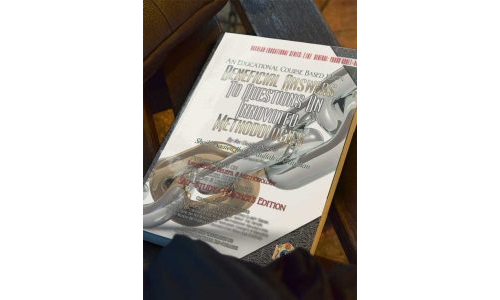What is the difference between al-Dharar and al-Dhiraar?
Source: Sheikh Saalih ibn al-‘Uthaymeen
What is the difference between *al-Dharar* [الضَرَر] and *al-Dhiraar* [الضِرَار]?
Sheikh ‘Uthaymeen – may Allah have mercy on Him – mentioned in his explanation of the hadeeth,
Hadeeth
{There should be neither harm [الضَرَر] nor reciprocation of harm [الضِرَار]}:
Explanation
*al-Dharar* [الضَرَر] [is causing harm and] can be in regards to the body, in regards to wealth, in regards to offspring, in regards to livestock, etc. And it occurs without intent. For example – a man has a neighbor who owns a tree which he waters everyday, and then the water enters upon his neighbor and bothers him, however he does not know this is happening. So this is called *dharar*.
And *al-dhiraar* [الضِرَار] is referring [to causing harm] with intent, and so it takes the grammatical form indicating that one is doing an act to/on another. For example – there is a man who has poor relations with his neighbor. So he says, ‘Verily I will do what harms him’. So he strains his voice to sound like a bulldozer against his neighbor’s wall, and his intent is causing harm to his neighbor. So because of that he is called a *mudhaar* [مُضَار] (a harmer).
And the *mudhaar* does not cease his harming when it is made clear to him [that he is causing harm to someone else] – rather that is his intention! But as for *al-dharar*, then when it is made clear to the one who is causing the unintentional harm, then he ceases to do it.1
______________________________________________________________________










![30 Days of Guidance: Signposts Towards Rectification & Repentance - [Book 3] Preview](https://taalib.com/wp-content/uploads/wpdm-cache/1book-whereisyourlife-1024-500x300.jpg)
